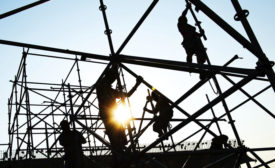News
Contractor’s defense in fatal fall: Victim was a subcontractor, not an employee
Dead worker was contractor's half-brother
June 17, 2019
Never miss the latest news and trends driving the safety industry
eNewsletter | Website | eMagazine
JOIN TODAYCopyright ©2024. All Rights Reserved BNP Media.
Design, CMS, Hosting & Web Development :: ePublishing









